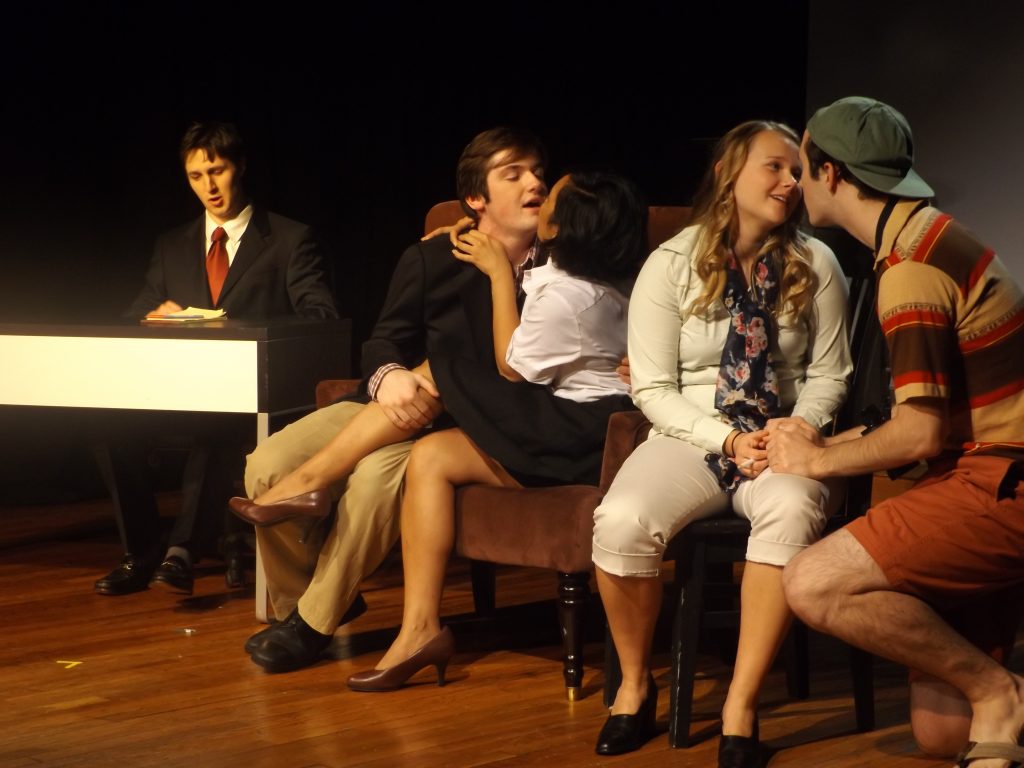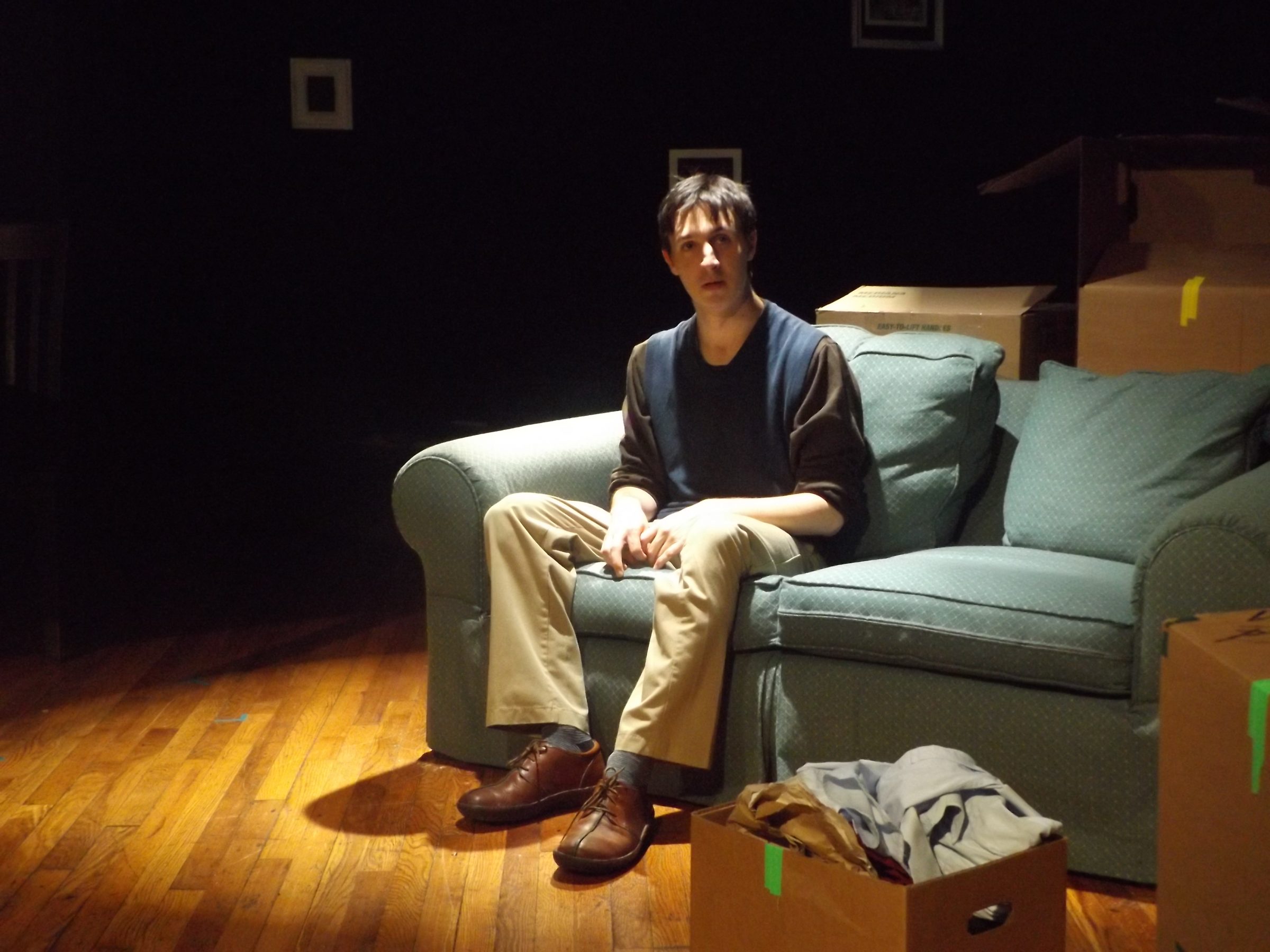2015 marks the 30th anniversary of Mask and Bauble’s Donn B. Murphy One Acts Festival (DBMOAF). Each year student-written scripts are selected and performed in honor of Dr. Murphy, who many view as the man who helped make Georgetown theater what it is today. Murphy’s philosophy focused on student creativity and accomplishment, which producer Emily Grau (COL ’16) explains the troupe attempts to embody in each year’s production.
In this spirit, DBMOAF opens with a delightful short comedy skit, The Appointment, written and directed by Marnie Klein (NHS ’17). It emphasizes the importance of communication, a theme that is certainly prevalent in the main play, but deals with it in a more light-hearted way.
This year’s play, Beyond, was written by Conor Ross (COL ’16). It follows a family after the death of Robert, played by Ari Shapiro (SFS’18). Robert’s adult children, Alan and Erin, return to their childhood home in the suburbs to assist their mother Adelaide, played by Cristina M. Ibarra (COL ’17) with the funeral arrangements. The family is haunted by the ghost of Robert, who death resurrects aspects of both the past and buried conflicts, such as Alan’s, played by Charlie Trepany (COL ’19) sexuality, and Erin’s, played by Emma Zetterberg (COL ’19) unemployment.
Ross’s play echoes the American classic (a theme also prevalent in Mask and Bauble’s performance of All My Sons) in both its topic and setting: family dynamics with suburbia as a backdrop. Ross’s careful mix of memory and present day sequences makes for an interesting and engaging play. Plot points are hinted at and alluded to before being later confirmed to the audience. It begins with Adelaide reciting her husband’s eulogy and ends with Alan saying his piece before Robert’s ghost goes to wait for a bus that will take him far away. It gives the impression of having come full circle, while reminding us that much has happened and the time has come to move forward.

Taryn Shaw
The play takes place in several locations. Set designer Taylor Bond (COL ’18) did a great job of reinventing the small stage to meet the needs of the play. The upper right already had a wall in place, which Bond turned into the inside of Adelaide’s house. Simple decorations effectively represent the home of a middle-class American family. The lower left stage serves as the setting for Alan’s new studio apartment, complete with a lumpy couch and numerous cardboard boxes. Bond innovatively created the illusion of a wall by suspending framed pictures. The center and lower left stage served as an open area in which set pieces could be easily moved between scenes in order to transform it into various locations.
Because parts of the set remain permanent, lighting designers Graham Kaluzny (COL ’18) and Nick McCarthy (COL ’18) successfully use spotlights to draw the audience’s gaze to where the action is taking place. Music is played between scenes, and adds to the overall atmosphere by conveying the mood of the scene that has just ended.
Director Marnie Klein has directed several smaller productions before, although this was her first full play. Both she and assistant director Nikki Hauser (COL ’19) stated that this production was very much a collaborative process. Both cast and crew worked together to readapt Ross’s script. Klein emphasizes the fact that, unlike productions of renowned plays, DBMOAF allows for a much more creative process. It is less about reproducing an already conceived idea, and more about working together to develop one. Last year’s DBMOAF, for example, challenged the cast and crew to collaboratively compose a working and script and set of monologues, after the original script was into conflict with copyright. This year’s collaborative process is reflected in the actors’ performances; all seemed to very comfortably embody their respective characters, due to their contribution in forming them. Trepany was particularly emotive in his Georgetown debut, effectively conveying Alan’s difficult relationship with his father. Shapiro’s performance as Robert, too, was an excellent start to his acting career.
Beyond is a pure product of Georgetown talent that masterfully explores the complexities of family life, examining the effects of loss and reconciliation — and may help students, despite the busy pace of life, take a step back and see their own families in a new light.






